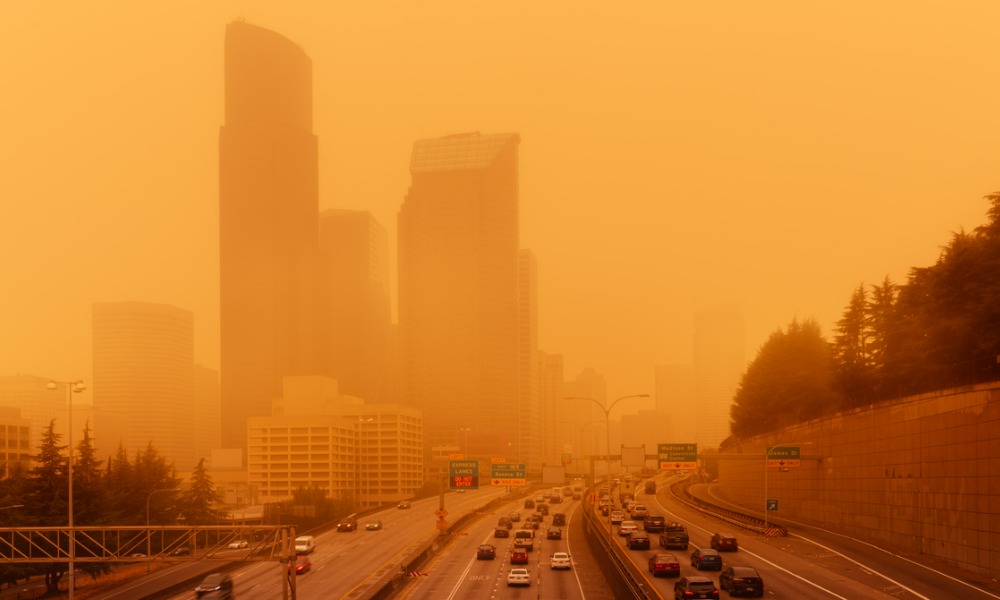
Air pollution hits workers' health, pockets, according to report

Wildfire smoke is dangerous to workers’ health – and it’s a pain in their pockets, too.
The widespread wildfires in Canada are bringing about poor air quality, which poses a health risk to workers, said Paul Billings, national vice president for public policy at the American Lung Association, according to a CBS report.
"It's really early in the season, we're still in the spring, and we're seeing these wildfires in Canada and the U.S. that are impacting air quality across the eastern United States,” said Billings on CBS MoneyWatch. “In New England, across the mid-Atlantic and into Minnesota, we're seeing elevated levels of particulate matter or soot.”
These small particles bring risks of asthma attacks, heart attack, stroke or early death to everyone, but people with heart disease, asthma or chronic obstructive pulmonary disease (COPD) are of higher risk.
"They penetrate deep in the lungs and where you have oxygen exchange systems," Billings said. "These particles actually get into your blood and create a wide range of poor health outcomes, including stroke, heart attacks and different kinds of cancer."
Previously, Google told staff in New York to stay home as wildfire smoke fills the air in the city and other major metropolitan areas, drifting from Quebec.
Globally, air pollution kills more than 3 million people a year, according to the World Health Association.
Wildfires and air pollution are also costly for workers.
Each day of smoke reduces quarterly per capita earnings by $5.20, or about 0.10 percent, according to the National Bureau of Economic Research.
“Multiplying this effect by the average number of smoke days each year, we calculate that wildfire smoke reduces earnings by nearly 2 percent of U.S. annual labor income ($125 billion in 2018 dollars) per year on average between 2007–2019,” it said.
Also, “an additional day of smoke exposure reduces employment by 80 employees per million residents aged 16 and older,” it said.
In 2022, the average overall financial wellness score for Americans stood at 5.04, down from 5.12 in 2021, according to Financial Finesse.
Businesses and governments can take some steps to help minimize the costs of air pollution, “like improving indoor filtration, not forcing workers to go outside and alerting issuing public service alerts about air quality,” according to the CBS report.
But reducing the toll of air pollution long-term means widespread electrification, Billings said. And that would reduce emissions from transportation and factories.
"I think too often, people look at these as anomalous weather events," he said in the CBS report. "This is not some happenstance of a fire. It's early June. There have always been fires, but the big driver that is creating these hot, dry conditions that are creating the opportunities for these fires is climate change."
Nearly half (48%) of workers believe it is extremely important for businesses to prioritize sustainability practices and values in today’s society, according to a previous report.